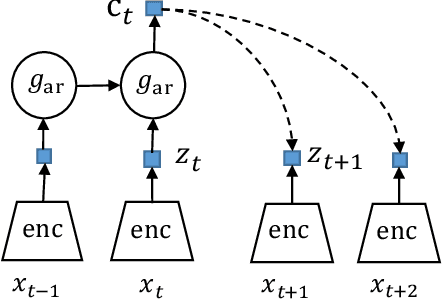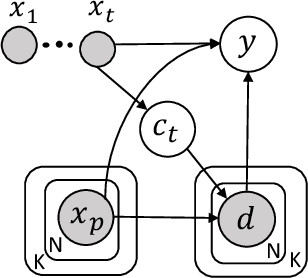Semi-supervised Learning with Contrastive Predicative Coding
Paper and Code
May 25, 2019



Semi-supervised learning (SSL) provides a powerful framework for leveraging unlabeled data when labels are limited or expensive to obtain. SSL algorithms based on deep neural networks have recently proven successful on standard benchmark tasks. However, many of them have thus far been either inflexible, inefficient or non-scalable. This paper explores recently developed contrastive predictive coding technique to improve discriminative power of deep learning models when a large portion of labels are absent. Two models, cpc-SSL and a class conditional variant~(ccpc-SSL) are presented. They effectively exploit the unlabeled data by extracting shared information between different parts of the (high-dimensional) data. The proposed approaches are inductive, and scale well to very large datasets like ImageNet, making them good candidates in real-world large scale applications.
 Add to Chrome
Add to Chrome Add to Firefox
Add to Firefox Add to Edge
Add to Edge